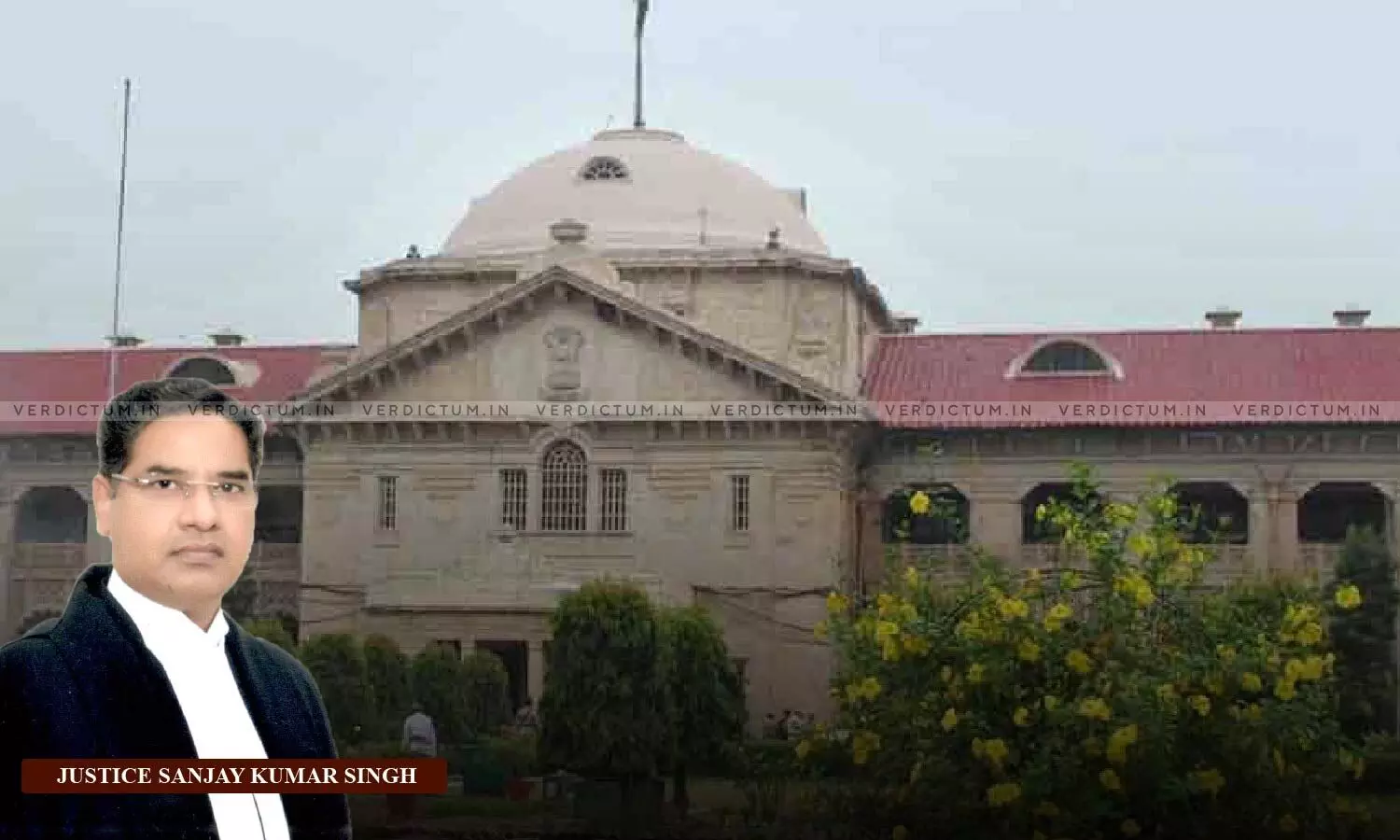
Accused Summoned For Cognizable & Non-Bailable Offences Cannot Apply For Bond U/S 88 CrPC: Allahabad HC
 |
|The Allahabad High Court held that an accused summoned for cognizable and non-bailable offences cannot apply for a bond under Section 88 Cr.P.C.
The Court explained that when there are overlapping provisions, one being a specific provision while the other being general, the law states that “specific and special provision shall prevail over the general provision.” Since the procedure with respect to bail and bonds was provided under Chapter XXXIII of Cr.P.C., Section 88 Cr.P.C. would not be attracted.
A Single Bench of Justice Sanjay Kumar Singh observed, “Order sheet of this case indicates that though the order of nonbailable warrants against the applicant are being issued continuously since 17.06.2015 by the trial Court, but the there is no report or finding of the Court about service of non-bailable warrant upon the applicant whereas applicant was in jail. No sincere effort was made by the trial court to ensure the service of notice, summons or non-bailable warrants upon the applicant or issuance of B warrant to the applicant.”
Sr. Advocate Ajatshatru Pandey represented the applicant, while A.K. Sand appeared for the opposite parties.
The case dates back to 2002 when a father filed an FIR to report his son as abducted. Later, Amar Mani Tripathi, the applicant, was implicated in the case and he subsequently surrendered before the Court.
In 2003, Amar Mani Tripathi was involved in another case, the murder of Madhumita Shukla, for which he was arrested by the C.B.I. He was granted bail but it was later dismissed by the Supreme Court.
Tripathi was released from jail in 2023 after serving a sentence for the murder case. However, he failed to appear before the court in the pending case where he was accused under Section 3(1) of the U.P. Gangsters and Anti-Social Activities (Prevention) Act, 1986 (the Act). Non-bailable warrants were issued against him, but he remained absent from court proceedings.
The trial court had issued proclamation under Sections 82 and 83 Cr.P.C. for his appearance, but the applicant argued that no sincere effort was made by the trial court to ensure the service of notice, summons or non-bailable warrants. Eventually, the trial court initiated proceedings under Section 83 Cr.P.C. against him when he failed to appear before the Court.
The Court held that where provisions of Chapter XXXIII of Cr.P.C. would be applicable, they cannot be dealt with by the procedure provided under Section 88 Cr.P.C.
The Court remarked, “The manner in which orders have been passed on the order-sheet since last twenty years…the possibility of manipulation in the matter adopting different modus operandi at each and every level can not be ruled out. No sincere efforts have been made to get the trial concluded at the earliest by the Court as well as prosecution.”
The Court did not allow for quashing of the proceedings under Section 3(1) of the Act in the light of the Supreme Court’s judgment in Shraddha Gupta v. State of Uttar Pradesh, 2022 SCC OnLine SC 514, where it was held that even a single crime committed by a gang is sufficient to implant Gangster Act on such members of the gang.
Accordingly, the High Court rejected the application.
Cause Title: Amar Mani Tripathi v. State of U.P. & Anr. (Neutral Citation: 2024:AHC:52164)
Appearance:
Petitioners: Sr. Advocate Ajatshatru Pandey
Respondents: GA A.K. Sand; AdvocateS J.K. Upadhyay, Rabindra Kumar Singh and Deepak Mishra